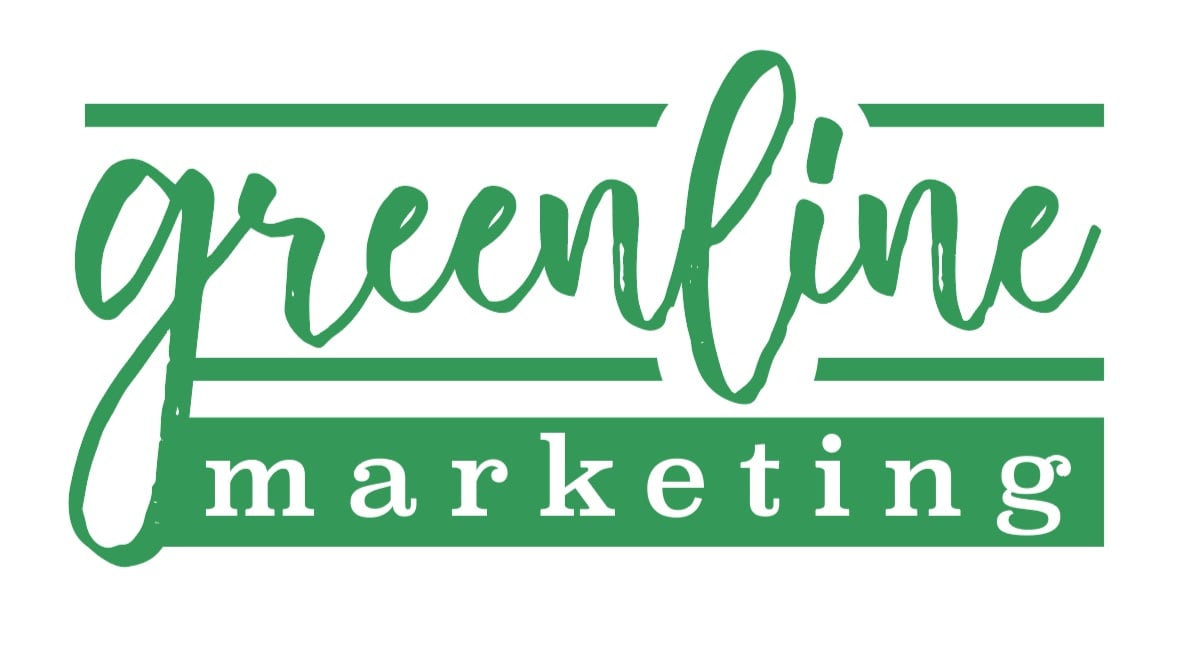This blog is part of our AI Insight Series, where we dive into the impact of AI on different marketing topics. In this post, we’re exploring the relationship between AI and content marketing. Using AI helps marketers create more targeted campaigns and understand their target audience on a deeper level by analyzing data on their demographics, interests, and behaviors. AI has the potential to improve your content efforts and make life easier. Over 70% of high-performing marketers have a fully defined AI strategy. By relying on AI content marketing, planning, and distribution tools to automate tasks and boost production, marketers have ample time for high-level strategizing and performance. 63% of people are unaware that they are already using AI technologies like personalized content suggestions. Unleash the power of intuitive marketing and revolutionize the way you create, personalize, optimize, and distribute content with AI.
AI-Driven Content Marketing
 Content marketing is centered around the planning, creation, and distribution of content of all shapes and sizes. This encompasses all of your writing, videos, social posts, and beyond. Many marketers call content the “king” behind campaigns. While content marketing is important to business success, it’s also time-consuming and often repetitive. From content creation to distribution, and optimization, AI can be used to elevate content along every stage of its journey. AI gives marketers a more intricate way to leverage data-driven insights, personalize content, and streamline their strategies. AI content marketing is used to integrate AI and machine learning programs with content tools. AI not only gives you the chance to improve the quality of your content efforts, but it also takes some of those tedious tasks off your plate.
Content marketing is centered around the planning, creation, and distribution of content of all shapes and sizes. This encompasses all of your writing, videos, social posts, and beyond. Many marketers call content the “king” behind campaigns. While content marketing is important to business success, it’s also time-consuming and often repetitive. From content creation to distribution, and optimization, AI can be used to elevate content along every stage of its journey. AI gives marketers a more intricate way to leverage data-driven insights, personalize content, and streamline their strategies. AI content marketing is used to integrate AI and machine learning programs with content tools. AI not only gives you the chance to improve the quality of your content efforts, but it also takes some of those tedious tasks off your plate.
1. AI in Content Creation
AI is reshaping content creation, by making it more efficient and enhancing the creative process. In fact, 77% of marketers agree that generative AI will help marketers create content more efficiently. AI-powered tools are able to generate a wide range of content, including articles, blog posts, and product descriptions. These tools use natural language processing (NLP) algorithms to analyze data, understand context, and produce cohesive content. AI’s creative assistance not only improves productivity but also supports content creators in delivering high-quality and engaging content to their audience.
While AI-generated content is not a replacement for human creativity, it can serve as a valuable asset for scaling content production and generating data-driven insights. AI-powered tools have the ability to generate content at scale, helping marketers meet the ever-increasing demand for high-quality content across multiple platforms. They can save significant time and resources by automating content creation processes, from researching and summarizing information to generating outlines. AI provides a strong base for marketers to let more creativity and ideation flow. This works well because AI algorithms analyze large volumes of data and identify patterns, trends, and audience preferences. The valuable insight AI provides inspires creators with new ideas, relevant topics, and unique angles to explore. Through suggestions for topics, headlines, and even creative elements, this innovative approach to content marketing sparks creativity and increases the potential for audience engagement.
2. Content Personalization with AI
A new world of possibilities opens up when it comes to delivering personalized experiences with AI. AI-driven content personalization enables marketers to tailor content to specific audience segments. Personalized experiences come from analyzing individual user data and preferences, which can be time-consuming, but not with AI in your corner. Analyzing user data and preferences gives you insight into audience behavior, interests, and preferences. AI algorithms can analyze factors such as demographics, browsing behavior, purchase history, and engagement metrics to develop a comprehensive understanding of the target audience. By leveraging this data, marketers can understand their audience on a deeper level and make informed decisions regarding content creation and delivery.
With AI, marketers can streamline the way they leverage user data and preferences, which leads to higher engagement and customer satisfaction. AI-driven algorithms make effectively segmenting your audience, creating tailored recommendations, and delivering targeted messaging across channels a whole lot easier. Achieving this level of personalization helps improve user engagement and conversion rates. By utilizing AI algorithms, you can proactively cater content elements such as headlines, images, recommendations, and calls to action based on your audience. Personalizing the audiences’ experience enhances their engagement, increases relevance, and improves your image. Nearly half (49%) of U.S. marketers are increasing their budgets for AI as part of their strategy to improve customer experience. It’s important to note that a large amount of business spending on AI technology revolves around efficient and personalized customer service, with AI-driven chatbots or AI sales recommendations. With how people respond to AI content, businesses have transformed how they personalize their marketing efforts. A whopping 77.5% of executives use AI to personalize emails.
By delivering more personalized experiences with AI, you can build stronger connections with your audience and foster customer loyalty. AI algorithms automate the process of personalizing content at scale, allowing for efficient and customized content delivery to your entire audience.
3. AI in Content Curation and Recommendation
AI analyzes large volumes of data to generate valuable insights, enabling marketers to make data-driven decisions and refine their content strategies. By analyzing customer data to identify target audience segments, AI helps to refine buyer personas and optimize content delivery to reach the right customers at the right time. AI-powered tools can assist in content curation and aggregation by automatically collecting, organizing, and presenting relevant content from various sources. These tools use machine learning algorithms to analyze attributes like topics, relevance, and quality to curate a selection of content that meets the user’s needs. Over 79% of marketers agree AI can improve the quality of the content they create.
AI automates the process of finding and compiling content, ensuring you have access to a wide range of high-quality resources for your marketing efforts. Through the analysis of user behavior, preferences, and historical data AI provides personalized content suggestions. Machine learning gives algorithms the power to understand user interests, similarities, and patterns. This helps users find relevant content that matches their interests, ensuring they are exposed to content that resonates with them. AI-powered tools for content curation and recommendation engines have the potential to greatly enhance content discovery and engagement. However, it is crucial to implement them with a responsible and ethical approach to avoid biases and promote a diverse and inclusive content ecosystem.
4. SEO Optimization with AI
Search engine visibility and organic traffic are driving factors in optimizing your content for SEO. AI can play a significant role in optimizing content for search engines, including analyzing content elements such as headlines, meta tags, content structure, and keyword placement to ensure they align with search engine ranking factors. Leveraging AI algorithms, marketers receive optimization recommendations so they can improve search engine rankings, increase organic traffic, and attract relevant audiences. These tools analyze content elements and provide recommendations for on-page optimization, including suggestions for keyword placement, content structure, readability, and other factors that impact rankings.
AI also assists in off-page SEO strategies by analyzing backlink profiles, identifying relevant and authoritative sources for link building, and monitoring the impact of backlinks on search engine rankings. This gives marketers the information they need to identify potential link-building opportunities, evaluate quality, and optimize off-page SEO efforts. By incorporating AI into on-page and off-page SEO strategies, marketers benefit from data-driven insights, automation, and improved accuracy in optimizing content for search engines. Leveraging AI enables marketers to stay up-to-date with the evolving SEO landscape and tune up their overall search engine visibility.
5. Content Performance Analysis with AI
AI has the power to amplify the reach and impact of your content. For example, AI can be used to track the performance of individual content pieces (a blog or social media post) to see how well they are performing in terms of views, engagement, and shares. They are also able to track the performance of entire content campaigns, showing you their performance levels in terms of leads generated, sales, and website traffic. AI excels at identifying trends, patterns, and actionable insights from vast amounts of data. AI algorithms can analyze data across platforms, from social media to customer interactions to market trends.
By uncovering correlations, sentiment analysis, and anomaly detection, among different sources, AI identifies emerging trends, customer preferences, and opportunities for your future content. Predictive analytics and AI-based forecasting identify trends and patterns in content performance so you can optimize your strategies by identifying which types of content are performing well and what’s not making the cut. AI-powered data visualization techniques can present these insights in a visually appealing and easy-to-understand way so that you can get the most out of the data. Tracking the performance of content and identifying trends and patterns alongside AI, allows for more well-rounded decisions to be made about content marketing strategies.
6. AI-Driven Content Distribution and Promotion
With AI working alongside you, content distribution processes can be more effective. Everything from scheduling social media posts, ad placements, and targeting specific audience segments is made easier. Automation saves time and resources while improving the overall effectiveness of content marketing campaigns. AI-powered tools can analyze audience behavior, preferences, and engagement metrics to find the best posting times, frequency, and content format. These tools can even suggest relevant captions and hashtags. AI helps maximize social media efforts, engagement, and the impact of content.
In terms of promotion, programmatic advertising platforms leverage AI algorithms to automate the buying, placement, and optimization of ads across digital channels. AI analyzes user data to deliver highly targeted ads to the right audience at the right time. Marketers can leverage AI to build their ad campaigns, allocate budgets efficiently, and achieve better ROI by reaching the most relevant audience with their content. AI can enhance personalized outreach (like email marketing) through more targeted messaging.
AI-powered email marketing tools can segment audiences, create personalized email content, and automate email campaigns based on user actions and triggers. The algorithms can also analyze email performance metrics, such as open rates and click-through rates, to provide insights and recommendations for optimizing email campaigns. By leveraging AI in email marketing, marketers can improve engagement, increase conversions, and deliver personalized experiences to their audience.
Incorporating AI into your content distribution and promotion efforts through social media management, programmatic advertising, and email marketing strategies, helps you reach the right audience at the right time. In turn, you’ll benefit from improved campaign results, conversion rates, and customer experiences.
Ethical Considerations for Using AI with Content Marketing
While AI can enhance content creation and delivery, it should be used responsibly to avoid amplifying biases in data. AI-driven content curation should prioritize diversity, inclusivity, and user preferences, while still valuing human creativity and decision-making. Achieving the right balance between personalization and creativity is key to successful AI-driven content marketing strategies. AI should be seen as a supportive tool to augment human capabilities rather than replacing human expertise.
Ensuring fairness and transparency is the core of maintaining trust with your audience. Continuously assessing biases and being open about the factors that influence search rankings, content selection, and personalization is essential. Diverse and representative datasets should be used to prevent bias, and user feedback should be encouraged in order to identify and address any issues. Protecting user privacy and data is crucial in AI-driven practices, which means obtaining user consent, providing transparent data, and adhering to privacy regulations should be a priority.
The Future of AI in Content Marketing
Over 80% of what we do every day will be intelligently automated to some degree in the next 3-5 years. Emerging trends and advancements in AI for content marketing are creating even bigger opportunities for marketers to jazz up their content efforts. As AI continues to evolve, learn and integrate with our world, it's important that we stay ahead of the curve and explore new ways to incorporate it into our content marketing strategies. Recently, Natural Language Generation (NLG) technology has advanced, enabling AI systems to generate more sophisticated and human-like written content. This allows for scalable content and personalized messaging. Voice assistants and chatbots powered by AI are becoming increasingly prevalent. They can engage with users in natural language, provide information, and deliver personalized recommendations, opening new avenues for content delivery and customer interactions.
Incorporating AI into your content marketing strategy has a positive correlation with success. Accenture reports that AI technology can improve productivity by 40%. By automating repetitive tasks, optimizing workflows, and providing actionable recommendations, AI tools can empower marketers to focus on higher-value tasks. AI has become a driving force behind content strategies, empowering marketers to create, distribute, and analyze content more effectively. Merging the power of human creativity and AI, propels us towards new frontiers of success. AI content marketing increases efficiency, content quality, personalized experiences, and data-driven decision-making. By integrating AI into content marketing strategies, businesses can achieve better results and deliver more effective content to their target audience.





